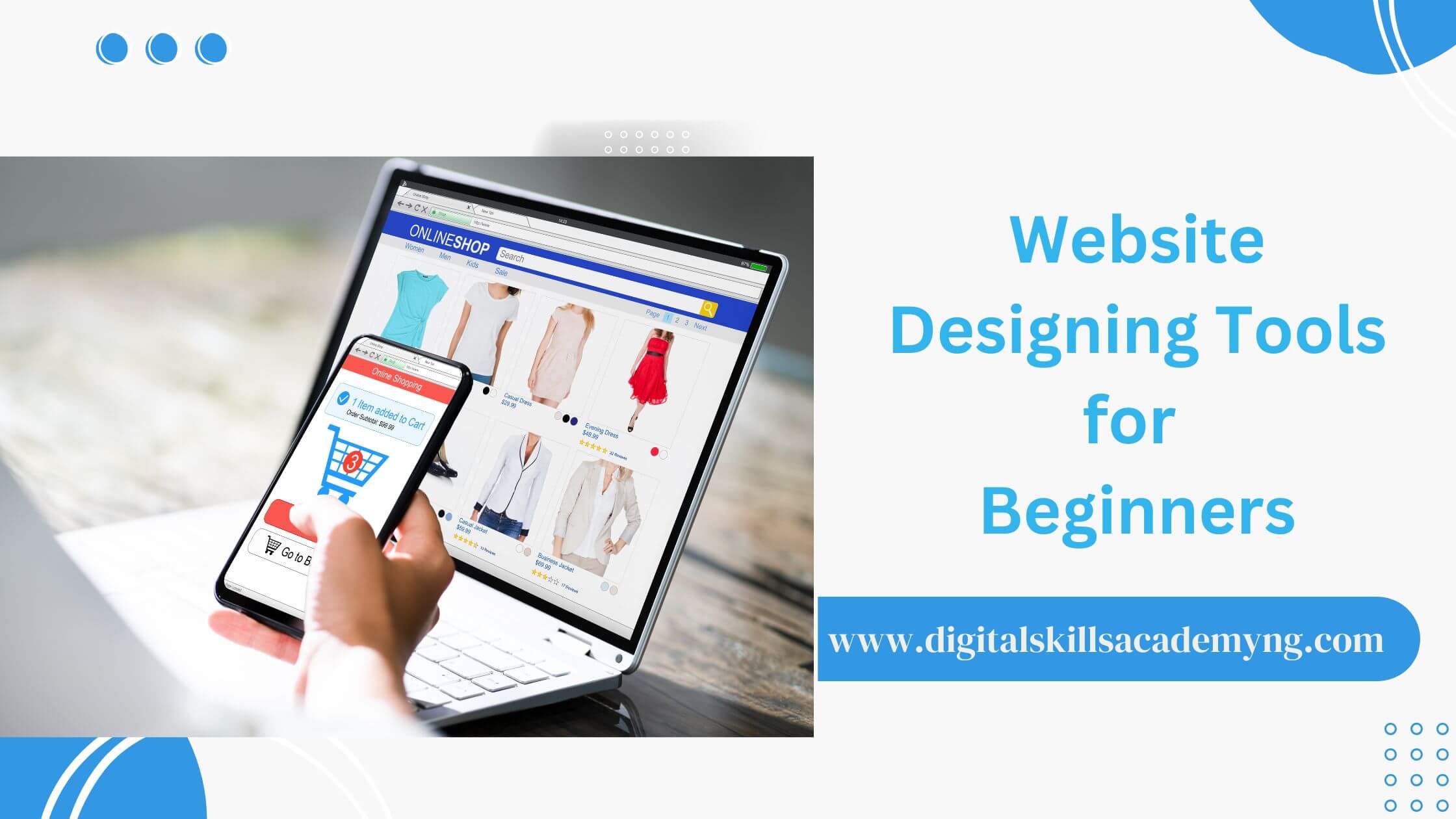Website Designing Tools for Beginners
In today’s digital world, websites are the cornerstone of any business or personal brand.
Whether showcasing a portfolio, running an online store, or starting a blog, having a well-designed website is essential.
However, creating one may seem daunting, especially if you’re a beginner. Thankfully, website design tools make this process simpler and more accessible.
This guide will introduce you to website design tools, explain what they’re used for, and provide a detailed overview of eight popular options for beginners.
BEST TOOLS FOR TRACKING YOUR WEBSITE PERFORMANCE
Table of Contents
What Are Website Design Tools?
Website design tools are software or platforms that help you create, design, and optimize websites.
These tools are designed to simplify the process, even for those with little to no coding knowledge.
Whether building a website from scratch or working on pre-built templates, these tools offer features like drag-and-drop functionality, customizable elements, and integration options to bring your vision to life.
What Are Website Tools Used For?
Website tools are versatile and can be used for various purposes, such as:
Designing Layouts: Structuring web pages to make them visually appealing and user-friendly.
Creating Graphics: Crafting visual elements like logos, banners, and icons.
Building Responsive Designs: Ensuring websites look great on all devices, from desktops to smartphones.
Adding Functionality: Incorporating features like contact forms, e-commerce capabilities, and interactive elements.
Optimizing Performance: Enhancing website speed, SEO, and overall user experience.
Top 8 Website Design Tools for Beginners
Here are eight beginner-friendly website design tools that stand out for their ease of use, features, and versatility:
Canva
Uses: Designing web graphics, banners, and layouts.
Features:
- Drag-and-drop editor.
- Pre-made templates for various design needs.
- Access to millions of stock images, icons, and fonts.
Pros:
- Intuitive interface.
- Affordable pricing plans.
- Free version with essential tools.
Cons:
- Limited functionality for complex website designs.
- Requires internet access.
Pricing:
- Free plan available.
- Pro plan starts at $12.99/month.
Wix
Uses: Building complete websites without coding.
Features:
- Drag-and-drop website editor.
- Hundreds of customizable templates.
- Built-in SEO and analytics tools.
Pros:
- Easy to use for beginners.
- Includes hosting and domain options.
- Supports e-commerce.
Cons:
- Limited flexibility for advanced developers.
- Pricing can increase with additional features.
Pricing:
- Free plan available (with ads).
- Premium plans start at $16/month.
Figma
Uses: Collaborative web design and prototyping.
Features:
- Real-time collaboration.
- Cloud-based platform.
- Advanced prototyping tools.
Pros:
- Ideal for team projects.
- The free plan supports small projects.
- Cross-platform compatibility.
Cons:
- The learning curve for complete beginners.
- No direct website publishing.
Pricing:
- Free plan available.
- Paid plans start at $12/editor/month.
WordPress
Uses: Building blogs, portfolios, and business websites.
Features:
- Thousands of themes and plugins.
- Customizable design options.
- Integrates with e-commerce tools like WooCommerce.
Pros:
- Highly flexible and scalable.
- Large community for support.
- Free to use (basic version).
Cons:
- Requires hosting and domain setup.
- It can be overwhelming for beginners.
Pricing:
- Free (self-hosted).
- Hosting costs start at $4/month, with premium themes/plugins priced separately.
Squarespace
Uses: Creating professional websites and online stores.
Features:
- Beautiful, responsive templates.
- Built-in e-commerce functionality.
- Analytics and marketing tools.
Pros:
- High-quality templates.
- All-in-one platform (hosting included).
- No coding is required.
Cons:
- Limited template customization.
- Higher cost compared to some alternatives.
Pricing:
- Plans start at $16/month.
Adobe XD
Uses: Prototyping and designing web and mobile apps.
Features:
- Vector-based design tools.
- Interactive prototypes with animations.
- Integration with other Adobe Creative Cloud apps.
Pros:
- Powerful design features.
- Free plan available.
- Frequent updates and improvements.
Cons:
- Best suited for advanced design projects.
- Requires a high-performance computer.
Pricing:
- Free plan available.
- Premium plans start at $9.99/month.
Weebly
Uses: Creating simple websites and blogs.
Features:
- Drag-and-drop builder.
- Built-in e-commerce and marketing tools.
- Free hosting with Weebly branding.
Pros:
- Beginner-friendly interface.
- Free plan for basic sites.
- Suitable for small businesses.
Cons:
- Limited customization options.
- Weebly branding on free plans.
Pricing:
- Free plan available.
- Paid plans start at $6/month.
Elementor
Uses: Designing WordPress websites visually.
Features:
- Drag-and-drop WordPress page builder.
- Pre-designed templates and widgets.
- Responsive editing tools.
Pros:
- Great for WordPress users.
- No coding is required.
- Affordable pricing for premium features.
Cons:
- Only functionality with WordPress.
- It may slow down the website’s loading speed.
Pricing:
- Free plan available.
- Pro plans start at $49/year.
Conclusion
Website design tools have revolutionized how websites are built, making it easier for beginners to bring their ideas to life.
Whether you’re looking to create a personal portfolio, launch an online store, or design stunning websites for others, there’s a tool to meet your needs.
But why stop there? Website design is not just a skill; it’s an opportunity.
With businesses increasingly relying on an online presence, knowing how to design websites can turn into a lucrative career or side hustle.
At Windave Digital Skills Academy, we empower individuals like you to master website design from scratch.
Our beginner-friendly courses are tailored to teach you how to use these tools effectively, whether you’re building for yourself or starting a web design business.
Don’t just admire beautiful websites; learn how to create them!
Sign up today and transform your ideas into reality!




